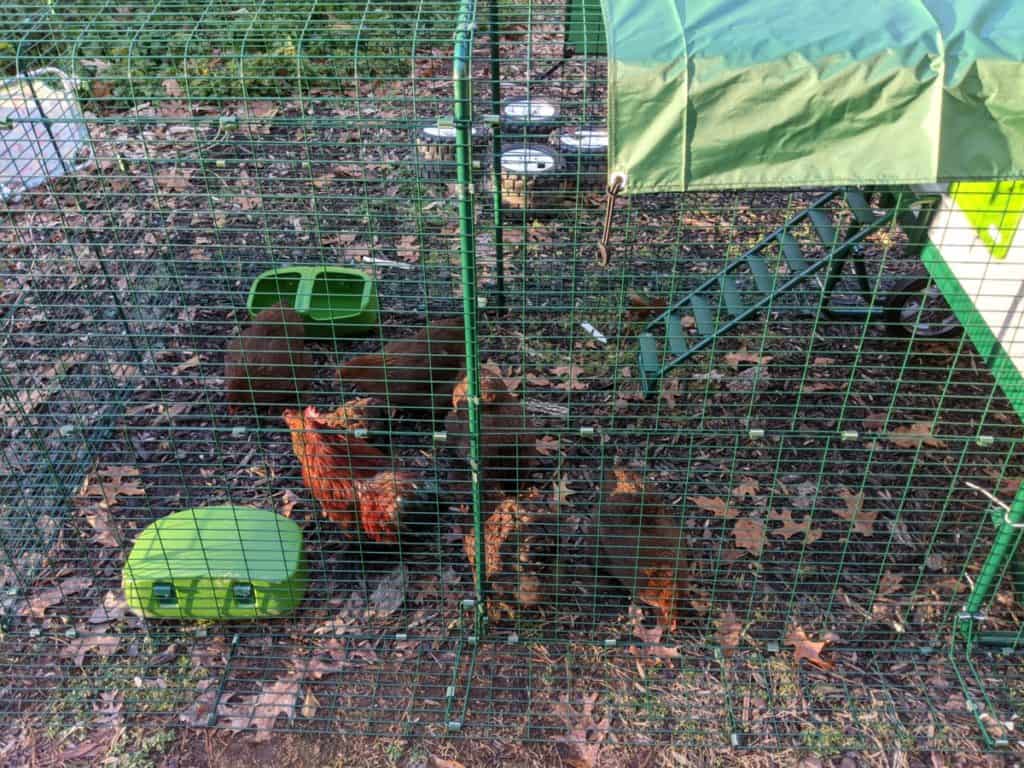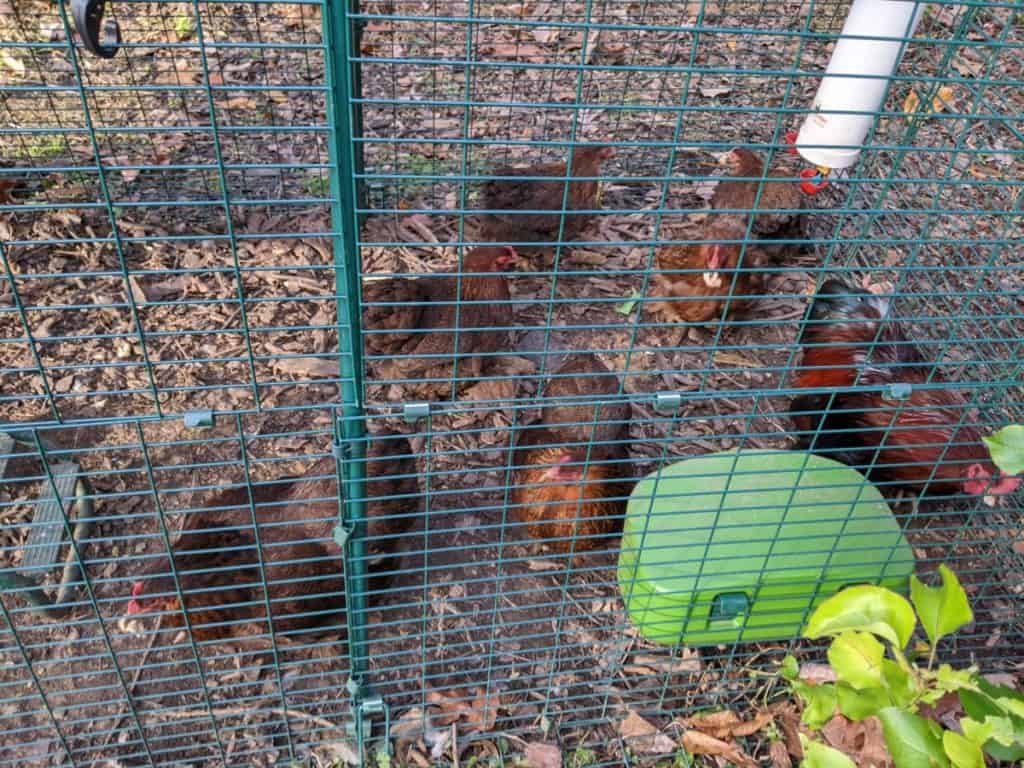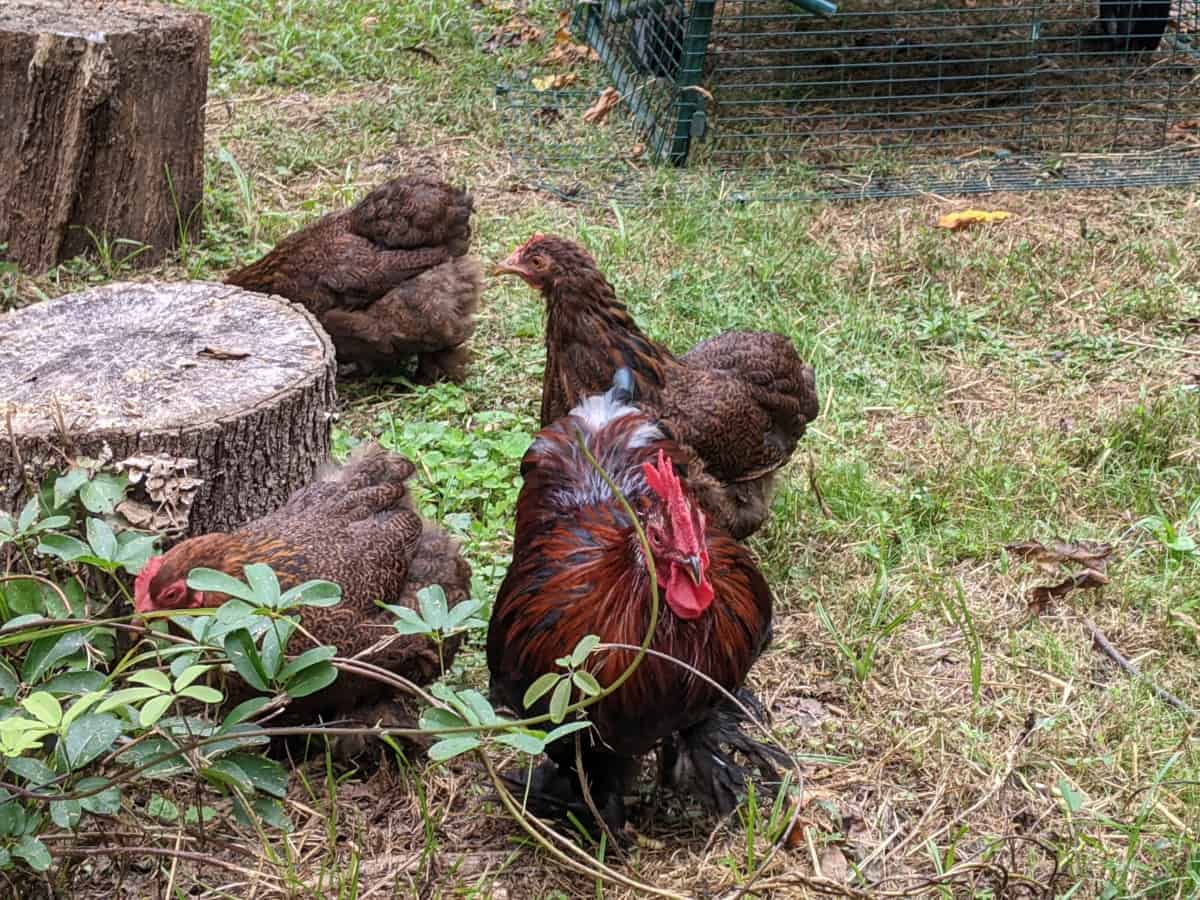Chickens live their lives by the sun. When it rises in the morning, they wake up, and when it sets in the evening, they return to their coop. They are creatures of habit. However, you may have noticed that your chickens can act unpredictably at times, sometimes refusing to roost in their coop at night. There are a number of reasons for this.
Chickens may stop going into their coop at night if it is dirty or has a pest infestation. If predators visit the coop at night, it can dissuade chickens from roosting in it. Hens lower down the pecking order that get bullied may prefer to stay outside. Broody hens may also refuse the coop.
Herding your chickens into their coop at night can be a frustrating task and is not something you should have to do. If your chickens refuse their coop, it is indicative of an underlying problem. This article discusses the reasons that chickens stop going into their coop and advises on ways to solve this issue.

Why Should Chickens Be Locked in the Coop at Night?
In their natural habitat, chickens roost in trees at night to stay safe from nocturnal predators. Their instinct is to return to the same place every night. Although some people let their chickens roost wherever they want at night, most people use a coop.
To keep your flock safe from the many creatures that could harm them, it is best to shut them in their coop overnight. One needs to ensure that the coop is secure enough to keep predators out. Nothing should be able to dig into the coop or break it open.
Reasons Chickens Stop Roosting in their Coop
Once you have gotten young chickens used to the idea that the coop is their home and their safe space, they should return to it every evening at sunset. If one or two hens or even the whole flock starts to roost in trees or other places around the yard, one of the following issues may be the reason:
- Pests in the coop. Chicken Mites or lice can infest a chicken coop. These little creepy crawlies come out at night and feed on the birds while they sleep! You would not want to sleep with bed bugs. Why would your chickens?
- Dirty coop. Chicken manure releases ammonia, so if the coop is not cleaned out frequently enough and the droppings build up, chickens will struggle to breathe inside their coop.
- If your whole flock suddenly refuses to roost in their coop, it is usually an indication that something is bothering them at night. If predators visit the coop at night, scratching at it and trying to get in, chickens will not feel safe in their coop and will look for a safer spot to roost.
- Social unrest. Chickens have a social hierarchy called a pecking order. If new chickens are introduced to the flock, roosters tussle for hens, or if a particularly dominant hen bullies another subordinate hen, it leads to some tension in the flock. Some hens may refuse to go into the coop at night for fear of being hurt.
- Broody hens. Broodiness is caused by a hen’s hormone levels. It is when they think their eggs are fertile and try to incubate them. This happens even in flocks without a rooster and is more prevalent in certain breeds, like Orpingtons and Silkies. It is not a problem when a hen’s nest is inside the coop, but if they have chosen another spot to lay their egg, they will refuse to leave it to go into the coop at night.
- The coop is new. Before feeling offended that your chickens do not approve of their coop upgrade, remember that they are creatures of habit. A sudden change in their life, like a new coop, can be unsettling. You will have to close your flock in the coop for 2 to 3 days so that they can get their scent all over it and learn that it is their new home.
- Predator at night is close by. Often animals such as racoons or possums that eat chickens are active at night. If they have found a way into the coop the chickens may seek other places to sleep.
Good Coop Hygiene is Important
It is a good idea to develop a routine for keeping your coop clean and pest-free for your flock. Chickens urinate and poop in their coop at night, so to prevent bacteria and ammonia fumes from building up in the coop, it will need to be cleaned out. Do not wait for your chickens to refuse their coop before cleaning it!
The type of bedding you use and how deep a layer of bedding you put down will determine how often the coop needs to be cleaned. The deeper the litter, the longer you can leave it.
The frequency of coop cleaning also depends on the size of the coop and how many chickens there are. If you use a few inches of bedding, it needs to be scraped out and replaced once a week, once every two weeks, or even once a month. If you use the deep litter method, you will only need to clean the coop out every four to six months.

Chickens Need to Feel Safe at Night
Chickens will choose to stay out of their coop if they do not feel safe inside it. If the whole flock refuses the coop, the problem is most likely a predator trying to get into the coop at night, or there is a mite or lice infestation in the coop. If one or two chickens do not go into the coop, it could indicate that they get bullied at night.
To resolve these issues, double-check your coop’s security, making sure there are no small holes for mice, rats, or weasels to get in through. Also, check the fence around your yard and close up any holes that foxes, raccoons, and other neighborhood creatures could get in through.
Deep clean your coop at least once a year, after winter, to prevent outbreaks of lice or mites. Diatomaceous earth can be used to treat infestations in the coop as well as on the chickens.
If you suspect that one or two hens are being bullied and this is the reason they refuse to roost in their coop, then you either need to increase the size of the coop or separate the offending hen for a while to reset the pecking order. If this does not work, you may have to cull or re-home an aggressive hen.
Dealing with a Broody Hen
When a hen is broody and incubating its “fertilized” egg on a nest outside the coop, there is no way it will leave its nest. It is not safe to leave a hen outside the coop overnight, even if they deem their nest a safe space. They do not see well at night.
There is also no known cure for broodiness. The only way to make them roost in the coop is to pick them up and put them into the coop. You may need to do this for a few days until their broodiness has subsided.
Conclusion
There are a few reasons chickens will stop roosting in their coop at night. Below is a table summarizing these reasons and the best solutions:
| Reason | Solution |
| Mite infestation in the coop. | Treat mites with diatomaceous earth. |
| Dirty coop. | Clean the coop more regularly. |
| Hen getting bullied by flock mate(s). | Get a larger coop or separate the bully. |
| Predators are visiting the coop at night. | Ensure the coop and yard are secure. |
| Broody hens. | Carry the hen to the coop for a few days. |
| The coop is new. | Shut the chickens in the coop for a few days. |

